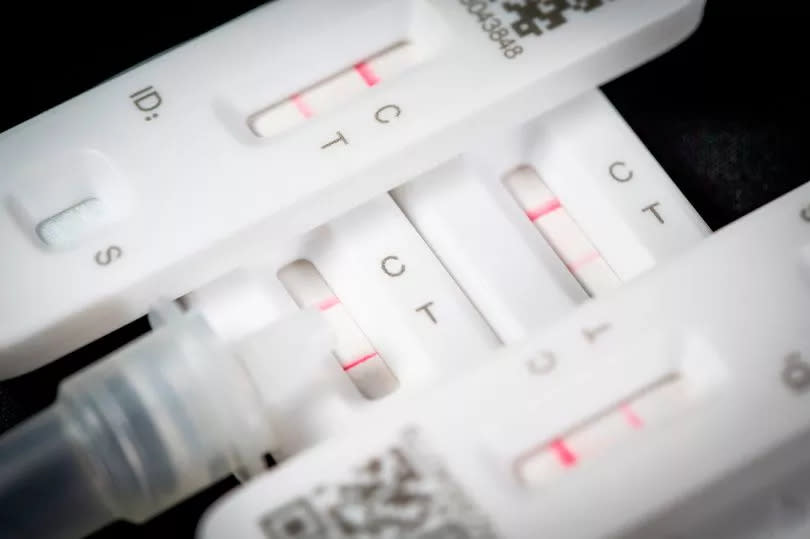Every FLiRT Covid-19 symptom you need to know as experts say 'it's a real risk'

A highly-infectious variant of Covid is rapidly spreading across the UK with cases on the rise. The new strain - known as FLiRT - has become dominant following a surge in positive tests for the deadly virus.
In the US, during the initial weeks of April, one of the FLiRT variants, KP. 2, was responsible for approximately 25 per cent of newly sequenced cases. The JN. 1 sub-variant has been observed circulating in the UK.
The UKHSA has identified KP. 2, among others, as a variant present in Britain, reports Birmingham Live.
Christina Pagel, professor at University College London, commented: "I think we are the start of a Covid wave driven by the FLiRT variants which are quite likely to be at about 50 per cent of total infections now."
The UKHSA is closely monitoring data related to these evolving variants both domestically and internationally. Crucial evaluations are being conducted regarding their severity and potential resistance to current vaccines, with the agency stating: "There is no change to the wider public health advice at this time."
A stark warning has been issued, saying: "As the virus spreads, it may change and become harder to stop."
Recognising symptoms of the FLiRT variants can be challenging due to their similarity to typical flu symptoms.
Many recover from initial symptoms within 12 weeks, however, some suffer a more severe illness or prolonged symptoms. The UK Health Security Agency stated that as more data on this new variant is collated, understanding of its interaction with the immune system will improve.
Amesh Adalja, a senior scholar at the Johns Hopkins Center for Health Security, emphasised to the Washington Post the importance of seeking antiviral treatments stating: "The key thing to remember is that if you are a high-risk person, these types of variants pose an infection risk. And if you have risk factors for severe disease, it's important for you to be up to date on vaccines and to have plans to procure Paxlovid if you become sick. But that's the same for every variant."
Covid-19 symptoms
The KP. 2 variant presents itself with similar symptoms to previous strains of Covid-19, including fever, chills, cough, and muscle or body aches. Covid-19 symptoms include:
a high temperature or shivering (chills) – a high temperature means you feel hot to touch on your chest or back (you do not need to measure your temperature)
a new, continuous cough – this means coughing a lot for more than an hour, or 3 or more coughing episodes in 24 hours
a loss or change to your sense of smell or taste
shortness of breath
feeling tired or exhausted
an aching body
a headache
a sore throat
a blocked or runny nose
loss of appetite
diarrhoea
feeling sick or being sick
If you're experiencing symptoms of a respiratory infection and have a high temperature or feel too unwell to work or carry out your usual activities, it's advised that you avoid contact with vulnerable individuals and stay home if possible.
There's no longer a requirement to take a Covid-19 rapid lateral flow test if you're symptomatic. However, if you or your child have tested positive for Covid-19. But if you or your child have tested positive for Covid-19:
try to stay at home and avoid contact with other people for 3 days after the day the test was taken if you or your child are under 18 years old – children and young people tend to be infectious to other people for less time than adults
try to stay at home and avoid contact with other people for 5 days after the day you took your test if you are 18 years old or over
avoid meeting people who are more likely to get seriously ill from viruses, such as people with a weakened immune system, for 10 days after the day you took your test

 Yahoo News
Yahoo News 
